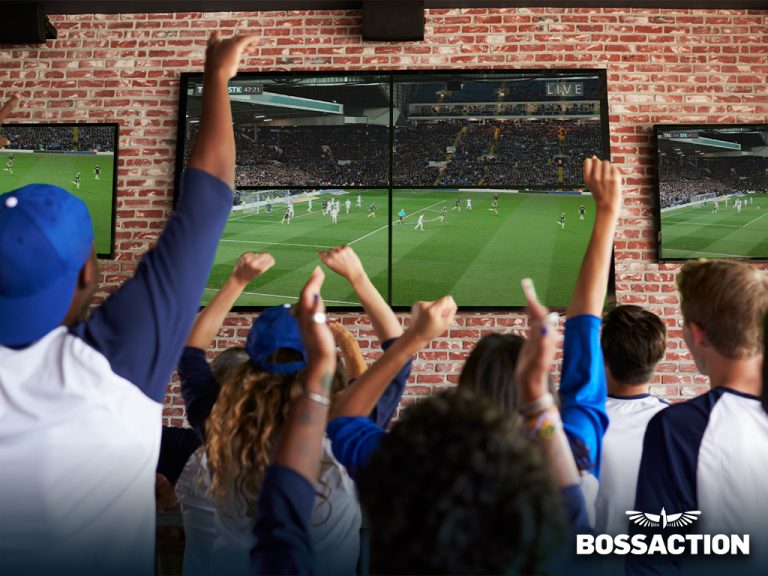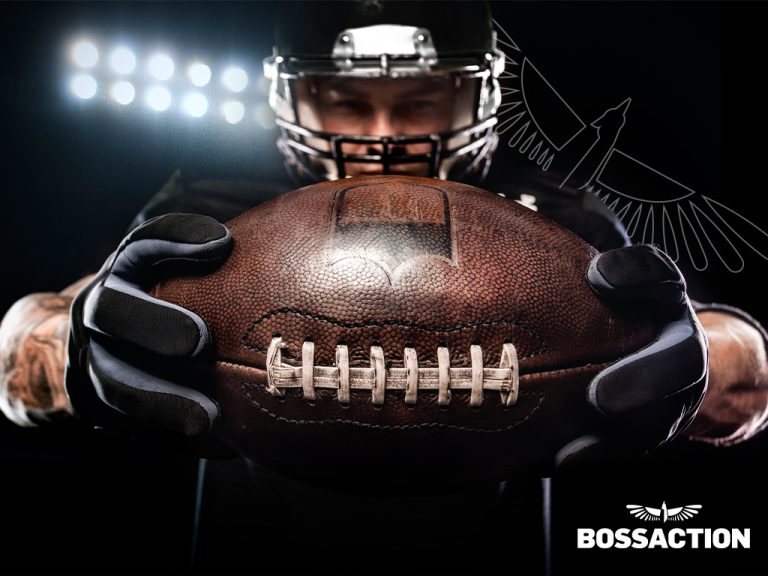Bookmaking is one of the oldest professions, and with that comes a huge amount of bookie slang vocabulary that can be heard by bookies and gamblers alike.
If you’re new to bookmaking in the US, it can be confusing to listen to the betting lingo you haven’t heard before.
To help you learn the language of an American bookie, we’ve compiled a complete glossary of all the bookie slang terms you need to know.
With this guide, you’ll be able to understand the bettors and become a well-rounded bookie.
Bookie Slang Terminology
A
- Accountant – a slang term for bookmaker or bookie.
- Accumulator – an alternate name for a parlay wager where multiple bets are combined together. With this kind of bet, all bets in the accumulator must win for it to win, resulting in a large payout.
- Across The Board – used in horse racing and refers to placing equal bets on a horse to win, show, and place.
- Action – having a sum of money riding on a bet.
- Also Ran – a participant, such as a car, horse, team, or athlete, that doesn’t place higher than fifth.
- Alternate Lines – when a casino offers adjusted totals, handicaps, and spreads with a corresponding change in the bet’s odds.
- American Odds – a way to express money odds. These odds will tell you how much you’ll win depending on how much you bet. They are shown with a number after a minus sign or plus sign, the former meaning the favorite, and the latter meaning the underdog.
- Angles – something that might influence the outcome of a race, game, or participant’s performance that gamblers can use to get an edge when placing a bet.
- Ante-Post – the odds that are revealed the day before an event.
- Arbitrage – this is a strategy used by gamblers that takes advantage of different betting lines at different sportsbooks. It is done by identifying a gap in the lines, meaning that it’s possible to bet on both sides and make a profit.
- ATS – refers to a team’s “against the spread” record, which shows how many times it’s beaten the point spread. For example, a team that has a 2-1 ATS has beaten the point spread twice and failed to beat it once.
B
- Backdoor Cover – when a team is behind the point spread but then scores enough points late in the game to cover it.
- Backer – a person who is bankrolling a gambler.
- Bad Beat – this is a poker term that refers to when a favorite to win actually loses. It can also be used in sports betting when something unexpected happens late in the game, resulting in a loss of the bet.
- Beard – a person who places a bet on someone’s behalf.
- Betting The Limit – betting the maximum amount allowed.
- Betting Ring – a group, or syndicate, of gamblers that work together to make the most out of their bets.
- Betting Line – the odds on a game or event.
- Bonus – a special offer where potential or existing customers are given a free bet or bonus cash as an incentive to sign up.
- Book – a term that refers to a bookmaker or sportsbook. This can refer to a person or betting establishment.
- Bookie – A person who takes bets. This sometimes describes an illegal bookmaker as well.
- Buck – a slang term that means $100.
- Bust – refers to going bankrupt or losing your bankroll.
- Buying Points – when a gambler buys points, they are adjusting the point spread on their wager. A gambler must accept lower odds on the bet’s payout in order to buy points in support of the team they are backing.
C
- Canadian Line – the point spread and money line in hockey games.
- Chalk – refers to the team or participant that’s the favorite to win.
- Chalk Bettors – bettors who always bet on the favorite, never the underdog.
- Circled Game – a game that is marked with a red box or circle around it on the betting board, meaning that the game is subject to reduced betting limits. This usually happens when key participants are injured, as it makes the outcome more uncertain.
- Closing Line – the set betting line on an event made before it begins.
- Consensus Pick – refers to how bettors have placed their bets on a game. Some will bet against the consensus pick so as not to follow a crowd that might be wrong.
- Cooler – a person who considered “bad luck”
- Cover/Cover The Spread – If a team beats the point spread established by the sportsbook, it is said to have “covered the spread.” The favorite team covers the spread by defeating the underdog by a greater margin, while the underdog covers the spread by defeating the favorite either outright or by a smaller margin.
D
- Data Mining – the process of examining several statistics in an effort to find data that might be used to forecast results and performance.
- Degenerate – someone who has a gambling addiction.
- Dime – a slang term for $1000
- Dime Line – a betting line with a 10% vig.
- Dog – the participant who is predicted to lose; short for the underdog.
- Dog Player – someone who often bets on the underdog.
- Dollar – another slang term for $100.
- Double Action – a bet that only plays if the bet placed before it wins, ties, or is canceled.
- Double Sawbuck – a slang term for $20.
- Dual Forecast – a bet used for motor and horse racing where three races are chosen. To win this kind of bet, the gambler must predict two of their bet’s finishing positions.
E
- Edge – the advantage that the gambler might have on winning a bet. An edge can be found by looking for inaccurate lines and odds.
- Even Money – a bet that has around a 50% chance of winning and paying out 1 to 1.
- Exotic – a distinct subset of proposition bets that are dependent on outcomes other than which team will win the match.
- Exposure – the amount of money a bookmaker or casino stands to lose on an event.
F
- Fifty Cents – a slang term for $50.
- Figure – the amount owed to a gambler or sportsbook.
- Fixed – If unjustified considerations have determined or impacted the result of a game, it is said to be fixed. A mixed martial artist who consented to lose the fight, for instance, is “fixing” it.
- Futures Bet – a type of proposition bet where the bet is made at the beginning of the season on who will win.
H
- Halftime Bet – bets that are made after the first half of a game and before the second half. Usually placed during basketball and football matches.
- Handicapper – handicappers work for casinos to set odds and betting lines. They are also gamblers who try to determine the odds to give themselves an edge.
- Handle – the total sum of bets made with a certain casino or sportsbook on a particular game or event.
- Hedging – betting against your initial wager in an effort to reduce risk or ensure a profit.
- High Roller – a gambler who makes many big bets.
- Hook – a half point in a point spread. For example, if a team is favored by a 4.5-point spread, they are laying “four and a hook”.
I
- In-Game Betting – making bets live while the event is happening, usually online.
J
- Juice – the commission on bets charged by the bookmaker or casino.
L
- Laying Points – when you wager on the favorite and the spread costs you points.
- Laying The Odds – when placing a money line wager on the favorite team necessitates accepting lower money odds. This is the opposite of “taking odds”.
- Layoff – when a sportsbook places its own wagers with an additional casino or sportsbook to reduce its own risk.
- Limit – the maximum amount the casino or bookmaker will let a person bet.
- Listed Pitchers – a baseball wager that will only play if both scheduled starting pitchers start the game.
- Lock – a big favorite that’s considered to be a guaranteed winner.
- Longshot – a bet that isn’t likely to win, but has a large payout.
M
- Mark – someone who is an inexperienced gambler and can easily be taken advantage of.
- Middle/Betting The Middle – when the line on an event moves, gamblers can take advantage of a “betting the middle” opportunity. It involves betting on both teams when the line moves and potentially winning both bets, or at least one guaranteed win.
- Money Line – refers to betting on which participant will win an event outright.
- Moving The Line – refers to when a bettor can trade better money odds for an extra half-point on the spread. It is the same as “buying points.”
N
- Nassau – a golf bet that includes gambles on the front nine, the back nine, and the whole match.
- Nickel – a bookie slang term for $500.
- Nickel Line – a bet with a 5% vig.
- No Action – a bet that is canceled with the wager fully refunded to the bettor.
- No Run First Inning/NRFI – a baseball bet where a wager is made on no runs being scored in the first innings.
O
- Odds – the chances of winning a bet, often represented by the different payouts for winning wagers.
- Off The Board – when a sportsbook or casino eliminates a betting line just before the game starts. This happens frequently as a result of important players suffering injuries or other game-related ambiguity.
- Outlaw Line – the earliest line set for an event that is only open to a particular group of gamblers.
- Over/Under – refers to betting on how many combined total points both sports teams will score. It is also used in casinos where gamblers bet whether or not the score will be higher (over) or lower (under) than the given value.
P
- Parlay – bets that include two or more different wagers, often on more than one game. All bets in a parlay bet must win for the overall wager to payout.
- Pick ‘Em – a game in which there is no point spread and it is believed that the two teams are evenly matched.
- Press – pressing your bet refers to placing a larger wager than usual. It can also be used to describe a second wager placed midway during a game or other event.
- Price – an alternative term for the point spread or odds.
- Prop Bets/Proposition Bets – bets on certain events unrelated to who will win the game overall. The subject of a prop could be anything, such as which team will score first or who will win the coin toss.
- Puckline – the puckline in hockey combines a 1.5-point differential with odds that resemble money lines.
- Push – another way to say “tie.”
R
- Risk-Free Bet – refers to when a bettor signs up with a sportsbook and places their first bet. The bet is risk-free because they will be credited the amount if they lose for future bets.
- Runline – a -1.5/+1.5 point spread mixed with money odds that are used in baseball.
S
- Sawbuck – a slang term for $10.
- Sharp – a professional gambler in bookie slang
- Square – an inexperienced gambler that does so recreationally.
- Steam – slang used to indicate that a betting line is rising because many bets are being placed on it.
- Straight-Up Winner – With a straight-up bet, you don’t have to worry about the team covering the point spread; instead, you just need them to win the game.
- Sucker – a bad gambler that often makes poor decisions.
T
- Taking The Points – betting on the underdog and receiving a point spread that your side can lose by.
- Teaser – through the use of teaser plays, gamblers can mix teams on a single wager and alter the point spreads.
- Ticket – a bet or wager.
- Total/Points Total – the combined points of both teams when a sports game ends.
V
- Value – the edge on a bet, referring to particularly good lines or odds.
- Vig/Vigorish – also referred to as “juice,” this refers to the commission on bets charged by the sportsbook or casino.
Bookie Slang In Conclusion
With this list of American bookie slang, you’ll be able to use it to your advantage and further understand all the vocabulary you need to know in the world of betting.



